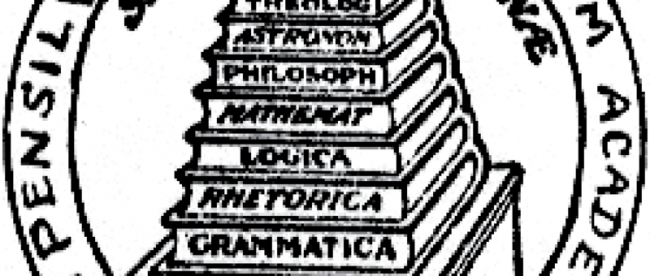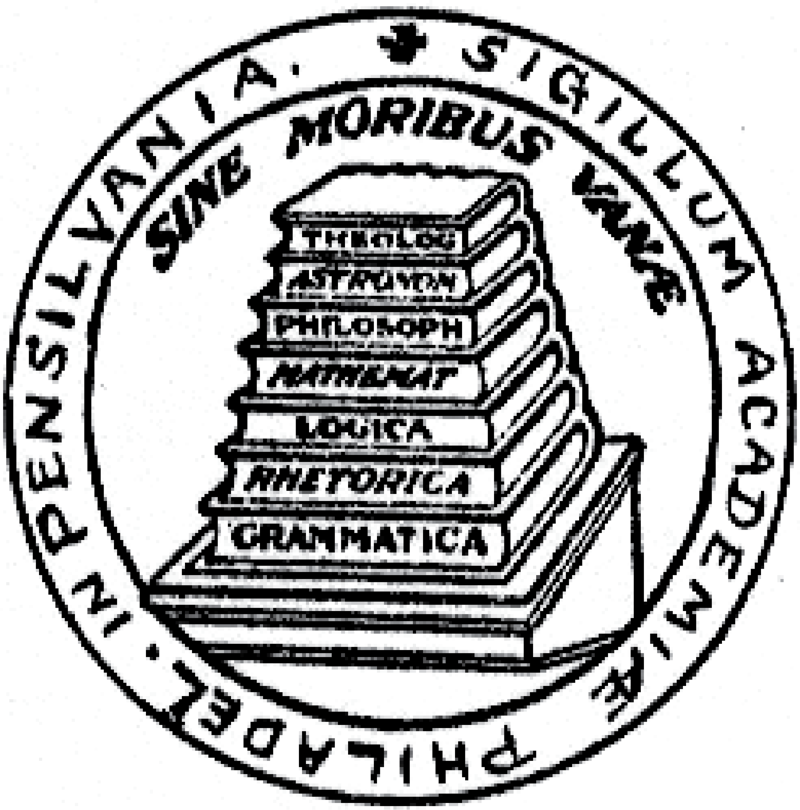The Accidental Case for Loose Morals


The Roman lyrical poet Quintus Horatius Flaccus, better known simply has Horace, lived in the first century BCE, and while his works aren’t often discussed today, that’s a relatively new development. Before the 1960s, when teaching Latin fell out of favor, Horace’s odes and other works were some of the most studied and recited poems in the English-speaking world. Institutions of higher learning often rooted entire class curricula around Horace, and the University of Pennsylvania went even further. In 1756, sixteen years after its founding, Penn took a Horace quote and used it as a basis for the university motto.
And nearly 150 years later, someone realized Penn made a pretty funny mistake.
In the 24th ode from Horace’s third book, the poet writes “Quid leges sine moribus vanae proficiunt?” which translates to “What use are all these empty laws without the behavior that should accompany them?” or “Of what avail empty laws without [good] morals?,” depending on the source one uses to translate Latin into English. The general idea, though, is the same — laws, without the morals needed to abide by them and enforce them, aren’t really all that valuable to a just society. It’s exactly the type of ideals that an Enlightenment-era American university would hope to instill on its students, community, and society.
Unfortunately, “Quid leges sine moribus vanae proficiunt?” is rather long for a motto and Latin is difficult to shorten. As you drop words, the meaning of other words, minus the omitted context, can change. When developing a seal for the school, Penn went with simply Sine Moribus Vanae, as seen above. That phrase means something like “[Action] without morals are empty” — or, at least, that’s one of the potential meanings. Unfortunately, one could also be translated to mean “Loose Women without Morals.” And that’s pretty close to the opposite of what the University had in mind.
In the late 1800s, this alternative translation became a popular joke in and around the Penn community. While this alternative definition was obviously not the intention of the school — and not one any fair-minded translator would assume to be the correct translation — the joke wasn’t one the school took lightly. According to the University’s official website, the idea of being associated with loose women without morals “distressed the Trustees that when the seal was rather radically redesigned in 1899 the word Literae was inserted so that the motto read “Literae sine Moribus vanae,” or “Letters without morals are useless.” Boring, but at least it’s not salacious.
Today, Penn’s motto is “Leges Sine Moribus Vanae,” meaning “Laws without morals are useless.” It’s a much better encapsulation of Horace’s original phrase, and that’s intentional. In 1932, Penn redesigned its seal, and used the opportunity to return to a motto more closely aligned with the original poem.
Bonus fact: There’s a city in Kansas called Gas, named for the abundance of natural gas found there when the city was settled. The city’s motto, according to the Chicago Tribune, is “Don’t pass Gas, stop and enjoy it.”
From the Archives: Just Plane Awesome: The wonderful story behind an airline’s slogan, and how it obtained it.
